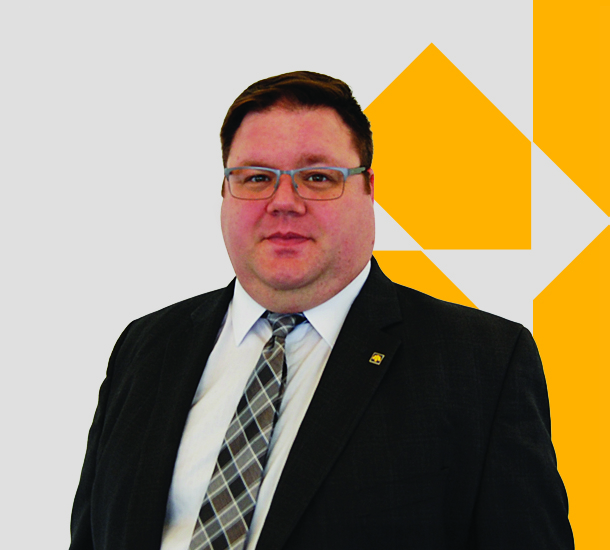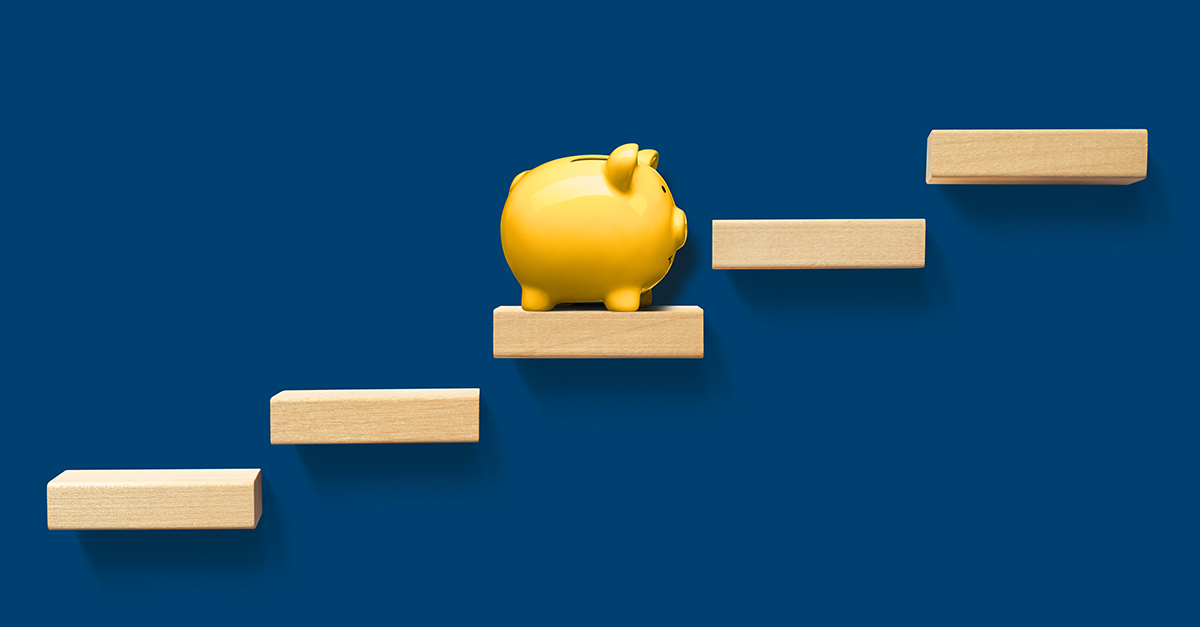My advice • January 29, 2021
modified on February 13, 2024
Interview - How to get the most out of an RRSP at every stage of your life
Interview with Isabelle Julien, advisor, Retail Services at the Beloeil branch, and explanation by Pierre-Raphaël Comeau, Expert Advisor, Wealth Management and LBC Financial Services Financial Planner.

At what age should you start contributing to your RRSP? Isn’t it too late to contribute after age 50? What’s the best investment strategy? These are some of the questions we have when it comes to RRSPs. In this interview, Isabelle Julien – Advisor, Retail Services at Laurentian Bank, answers the most common questions about using RRSPs at every stage of life.
Advisor – Beloeil branch
 Pierre-Raphaël Comeau
Pierre-Raphaël ComeauExpert advisor, Wealth Management
and LBC Financial Services Financial Planner
Q: At what stage of life do you advise your clients to start saving?
A: It's always advisable to start saving as early as possible, as this enables us to develop good habits. Moreover, saving as soon as you have income lets you build up an emergency fund before you experience a major change in your life, such as starting a family or planning to buy your first home.
Q: Is it better to contribute to an RRSP or a TFSA at the beginning of your career?
A: It depends on your situation and objectives. An RRSP is a good choice for projects like retirement, buying your first home under the Home Buyers' Plan (HBP) or financing a return to school with the Lifelong Learning Plan (LLP).
On the other hand, a TFSA can also be an excellent retirement savings vehicle depending on your age and income. For younger professionals who expect to have a growing income in the years to come, a TFSA can help save for years when the tax rate will be higher and it will be wiser to contribute to an RRSP. In addition, you can withdraw from a TFSA without paying tax on returns. Your advisor will guide you based on your situation and objectives.
Unlike a TFSA, an RRSP allows immediate savings on the taxes you have to pay. You will only need to pay them when cashing in your RRSP, often several decades later, so it's a bit like an interest-free government loan for all those years. Besides, generally speaking, someone who currently earns an annual income of over $44,5451 will have to repay less when cashing in than the tax benefit they would have received today.
"But this isn’t the only criterion to consider! Since RRSP contributions can also have an impact on social benefits, especially for people in precarious situations (single-parent families or the working poor), they could improve the various family allowances, the Canada child benefit, the GST/QST refund, etc. RRSP contributions could therefore become even more profitable than a simple “tax refund.” It’s better to discuss this with your tax advisor, who will be able to analyze your situation closely and give you the best tax planning options," adds Pierre-Raphaël Comeau.
Q: What’s the best strategy for mid-career retirement planning?
A: First, complete your financial health assessment to better understand the state of your current finances, as well as your projects and priorities, and get personalized advice to improve your financial health. Then, to properly plan your retirement, it’s best to start with a projection to assess whether your current saving habits will enable you to retire at the age you want. If there’s a gap between your current situation and your retirement objectives, the retirement projection will enable your advisor to suggest the best strategies based on your savings capacity. There’s no need to deprive yourself of everything today to enjoy life only once you retire. The important thing is to start saving and review the plan annually. A good time could be when you receive employer bonuses or just after your salary review.
Q: Is it worthwhile to contribute to an RRSP after age 50?
A: It depends. After age 50, we often have a higher salary and our expenses decrease. The more our salary increases, the more advantageous it becomes to contribute the maximum amount to our RRSP, because our tax savings go up. "In addition, before age 50, we often have a mortgage loan to pay off and expenses incurred for the children, which may prevent us from contributing to our RRSP as we should," says Pierre-Raphaël Comeau. After our mid-forties or early fifties, we can save more, so this could be the perfect opportunity to increase our contributions to make up for lost time.
Q: At what age can we start using the money we’ve saved over the years?
A: There’s no one-size-fits-all strategy. Retirement and transitioning to it will vary from one person to the next; the most important thing is to plan for a transition. “Many people don't necessarily want to go from a 50-hour workweek to not working overnight. Increasingly, people are opting for semi-retirement, consulting or even reduced hours to focus more on enjoying their leisure time and starting small projects. Much like how we can expect and plan for a change in how we spend our time, we can also expect and plan for the way we use our savings as income replacement,” says Pierre-Raphaël Comeau. Your advisor will work with you to set a disbursement strategy to take full advantage of your hard-earned savings and limit the tax impact on your nest egg.
The earlier you contribute to your RRSP, the better prepared you will be for your retirement. To properly manage your personal finances, or complete or review your Laurentian Bank financial health assessment, feel free to contact your advisor. They will suggest the best investment strategy according to your objectives and current financial situation.
1. For fiscal year 2020.
RRSP: Registered Retirement Savings Plan
TFSA: Tax-Free Savings Account
HBP: Home Buyers' Plan
LLP: Lifelong Learning Plan
+ Legal Notices
New investment accounts are offered by LBC Financial Services Inc. (LBCFS), which is a wholly owned subsidiary and a legal entity distinct from Laurentian Bank and Mackenzie Investments. Mutual funds and the financial planning service are offered by LBCFS. Mutual funds are part of the Laurentian Bank Group of Funds managed by Mackenzie Investments. A Laurentian Bank advisor is also a licensed LBCFS Mutual Fund Representative.
Commissions, trailing commissions, management fees and other expenses all may be associated with mutual fund investments. Nothing guarantees that the fund will maintain its net asset value per unit at a constant amount or that the full amount of your investment in the fund will be returned to you. Mutual fund values change frequently, and past performance may not be repeated. Please read the simplified prospectus or Fund Facts before investing in mutual funds.
The articles on this website are for information purposes only. They do not create any legal or contractual obligation for Laurentian Bank and its subsidiaries.
These articles do not constitute financial, accounting, legal or tax-related advice and should not be used for such purposes. Laurentian Bank and its subsidiaries may not be held liable for any damage you may incur as part of such use. Please contact your advisor or any other independent professionals, who will advise you as needed.
The articles may contain hyperlinks leading to external sites that are not managed by LBC. LBC cannot be held liable for the content of such external sites or the damage that may result from their use.
Prior written consent from the Laurentian Bank of Canada is required for any reproduction, retransmission, publication or other use, in whole or in part, of the contents of this site.








